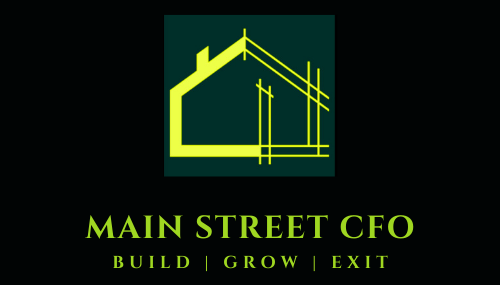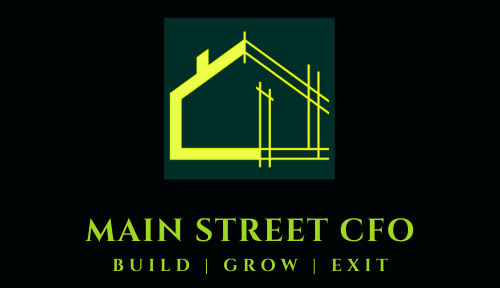The wrong job at the wrong margin...
Why margins matter...
"The wrong job at the wrong margin can sink a great company" …even the right job at the wrong margin can be damaging…but what does that mean? Simply put, it means that even a successful, well-managed business can be weighed down by taking on a project that doesn’t generate enough profit or worse, loses money. Here's why it matters:
1. Low-margin jobs drain resources: Every project consumes time, labor, equipment, and capital. If the profit margin is too thin, the return on those resources is minimal or negative. That, in turn, can prevent the company from taking on better, more profitable work.
2. Hidden costs add up: Jobs that look marginally profitable on paper often have hidden costs (delays, change orders, material cost overages, or the occasional client dispute) that can wipe out profit and/or create losses.
3. Cash flow gets squeezed: We have a saying at Main Street CFO’s…”Cash Flow over Everything”...Low-margin work can delay payments or cause overages. This stresses cash flow. Even when busy, a company might struggle to make payroll, pay vendors, or reinvest in the business.
4. Job-spiral:
In industries like construction or real estate, a single unprofitable job can have a domino effect. This can tie up bonding capacity, overload crews and can ultimately damage client relationships as well as your reputation in the industry.
That’s why having a system that assist you in making sound financial decisions is so important.
Strong financial oversight, like accurate job costing, margin analysis, and forecasting, a company can:
- Avoid unprofitable jobs immediately
- Price jobs correctly to protect margins
- Track performance in real-time and adjust as needed
- Ensure long-term profitability
If you would like some help creating a solid foundation on which to build your financial roadmap, let us know. If you’d like a second set of eyes to evaluate the one you already have, we can assist there as well…
Hope this helps…













